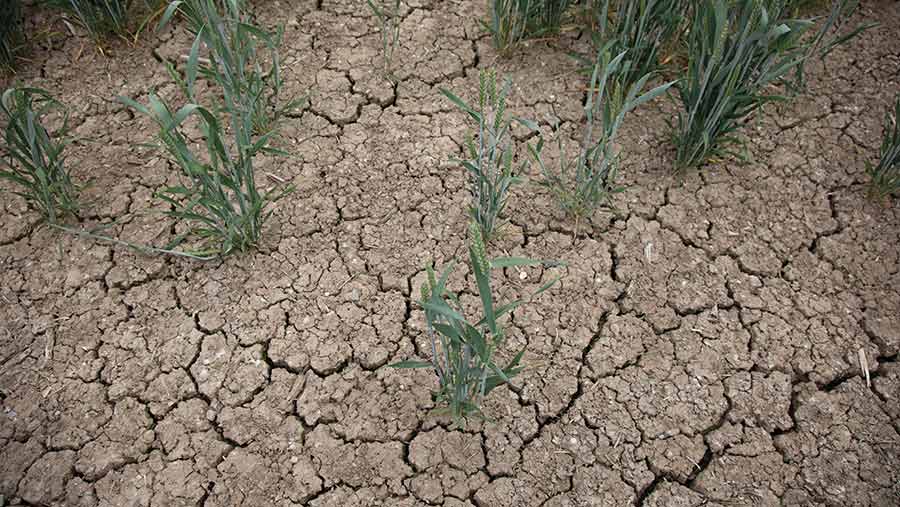Opinion: Become a ‘soil champion’ before it is too late
 © Tim Scrivener
© Tim Scrivener It is very easy to take soil for granted, but if we want to continue enjoying the riches of our soils in the future, something urgently needs to be done.
In England and Wales, more than 2m hectares of soil are at risk of erosion, some 300,000ha are contaminated, and almost 4m hectares are at risk of compaction, affecting soil fertility, productivity and health.
See also: Find all our soil advice in one place
About the author

Dr Bruce Lascelles is the president and a trustee of the British Society of Soil Science and chairman of the World Congress of Soil Science.
Here he discusses the crucial importance of protecting British and global soils.
Globally, too, one-third of agricultural soil is “moderately” to “highly” degraded, threatening global food supplies, increasing carbon emissions and affecting water-holding capacity.
In some parts of the world, mass migration is taking place as a result.
Widespread microplastics, the effects of nutrient imbalance, pollution, acidification, loss of biodiversity and climate change are added risks, putting increased pressure on our fragile soils.
A change in farming practices has never been more urgent.
Generally made up of mineral material, air, water and organic matter, in healthy soil the interactions between chemistry (pH, nutrients and contaminants), physics (soil structure and water balance), and biology (including earthworms, microbes and plant roots) are in balance.
A typically healthy soil will be teeming with biodiversity and may include a variety of earthworms, 20-30 types of small arachnids, 50-100 species of insects, hundreds of different fungi and thousands of bacteria species.
Nowhere else in the world is nature so densely packed. A teaspoon of soil can contain more organisms than there are humans living on Earth.
The more farmers know about their soils, the better placed they are to actively make strategic management decisions, maintaining and improving the soil health, while making informed choices about cultivation methods, crop rotations and organic matter inputs.
Farmers and land managers should allow nature to show the way and work in ways that avoid the overexploitation of our soil resources, reducing the risk that they will be damaged for the generations to come.
Protecting and enhancing the environmental value of farmland is changing. The development and availability of new technologies is helping the sector to become more productive.
Farmers and land managers are being encouraged to protect and enhance the environmental value of farmland, encourage wildlife, and are being rewarded for innovations, climate-friendly food and regenerative agriculture practices.
Sharing ideas, knowledge and scaling action is vital – for the good of the ground, the Earth and, ultimately, us.
There is so much untapped potential, so much wonder and so many secrets waiting to be discovered.
In just over a week, some 3,000 soil scientists from around the globe will descend on Glasgow for the 22nd World Congress of Soil Science 2022.
The theme “Crossing boundaries, changing society” will focus on soil systems, processes, management and how we interact with and use soils around the world.
In the words of Prof Bridget Emmett of the UK Centre for Ecology and Hydrology: “Soil is one of the most under-rated and little understood wonders on our fragile planet.”
It is time for everyone to become a champion in the fight to safeguard our soils.
